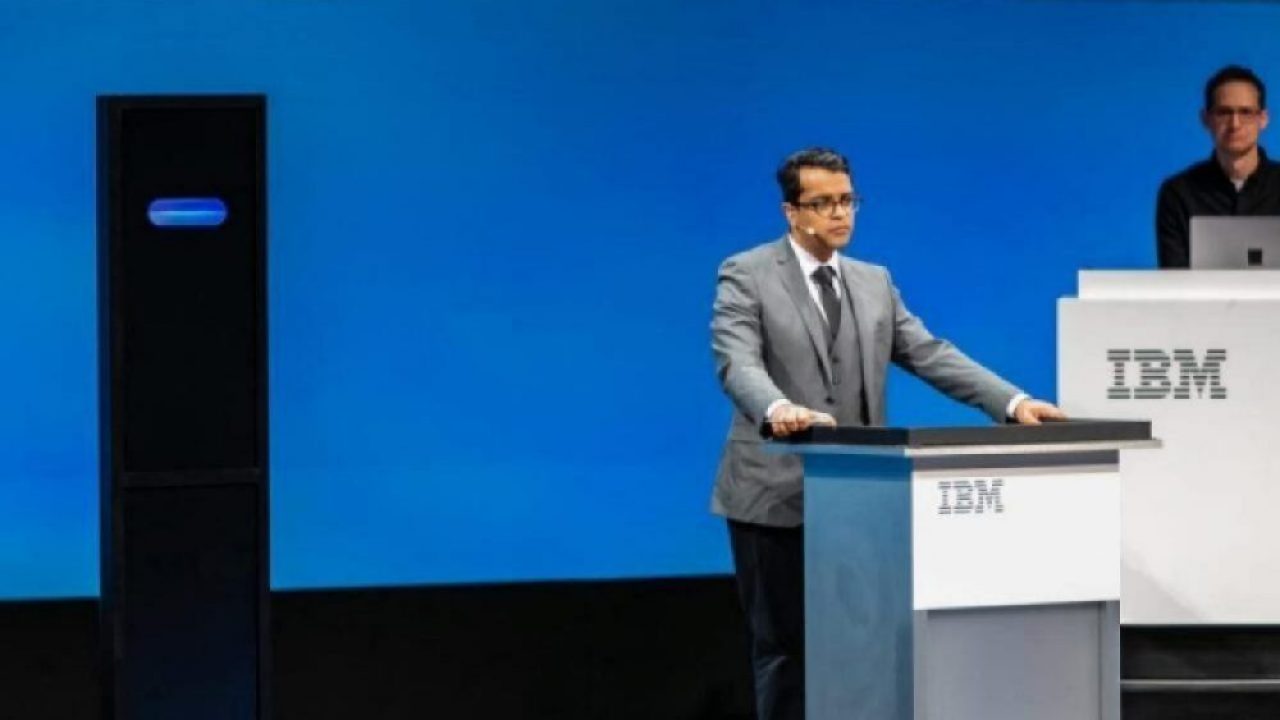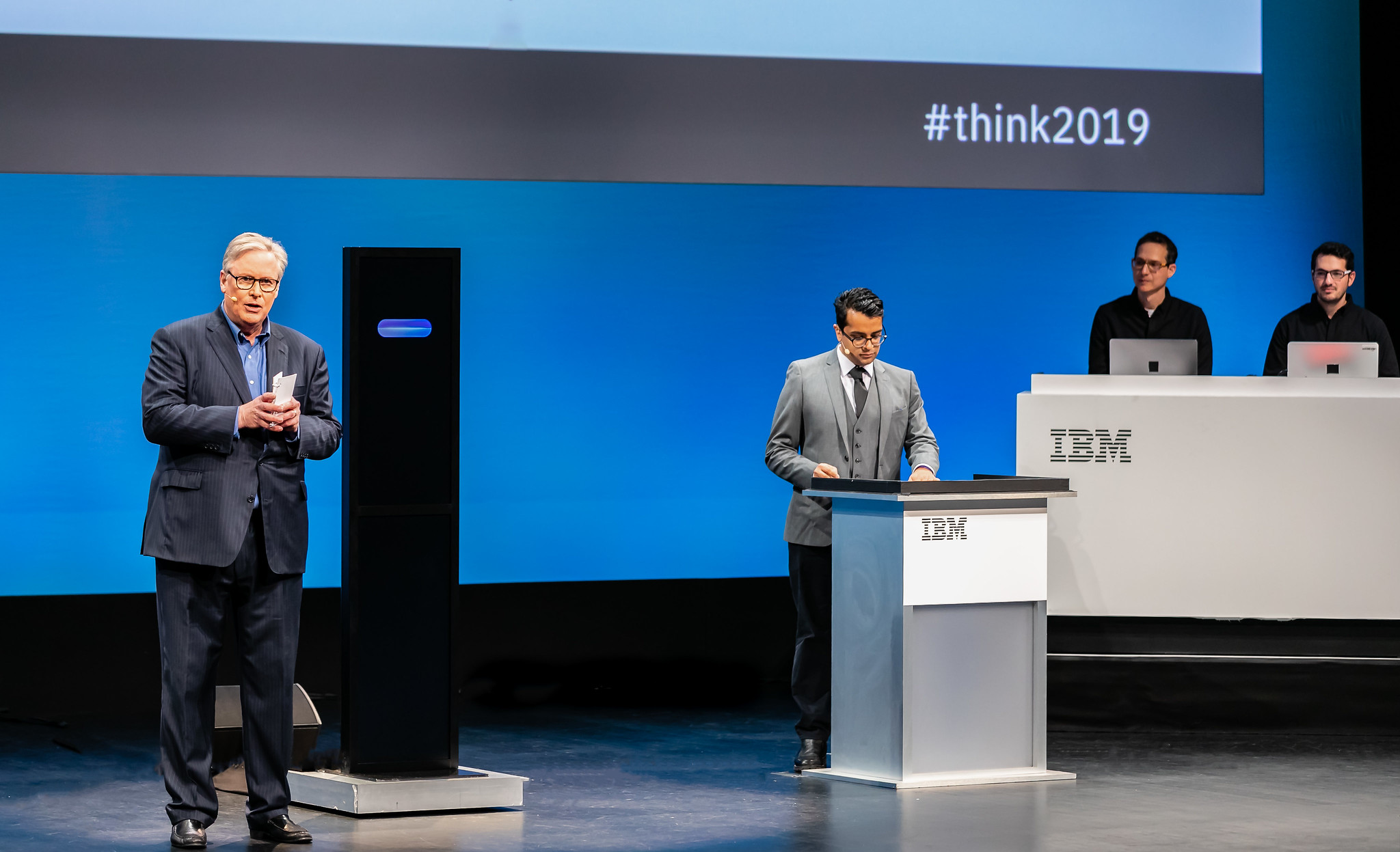IBM’s Watson Now Understands Idioms
Article By : Sally Ward-Foxton

The technology from Project Debater is now commercially available as part of Watson.
On your marks, hold on to your hats, and get ready to roll, because IBM Watson’s ability to understand idioms is coming along leaps and bounds.
IBM is integrating several technologies from Project Debater to its Watson AI platform, starting with advanced sentiment analysis, which includes the ability to understand idioms. This doesn’t mean deciphering the literal meaning of each idiom, but correctly predicting whether the sentiment of the phrase is positive or negative. This capability will be used by call centres and virtual assistants across a range of industries to better predict what customer enquiries are about and triage responses.
Natural language processing (NLP) is a particularly difficult task for AI. Complex language such as idioms and sentiment shifters, where combinations of words change the meaning of phrases, have made it much harder for machines to understand casual speech. These parts of every day speech have traditionally been very difficult for machines to spot, but understanding the nuance they add to language is vital to successful NLP.
Project Debater
IBM has a long history of using games to advance the state of the art in artificial intelligence, right back to 1997 when Deep Blue famously beat Grand Master Garry Kasparov at chess.
Project Debater was demonstrated live on stage a year ago, forming well-reasoned arguments in real time while debating against human debate champion Harish Natarajan.
“[Debater] is a demonstration of the ability of machines to debate, and the power of advanced natural language processing techniques to create arguments, make sure that they’re defensible, construct salient narratives around those arguments, and then to rebut counter-arguments that are made against whatever the original position is that the machine had,” Daniel Hernandez, vice president of data and AI at IBM, told EE Times.

IBM has been contemplating potential use cases for Debater itself, said Hernandez, but also for some of the core, underlying natural language processing techniques that it was the vanguard of. This includes the advanced sentiment analysis capability, including understanding of idioms and sentiment shifters, that was developed for Debater.
Watson Understands
Customers of IBM’s Watson will be able to use this new sentiment analysis capability straight away. Hernandez sees it being used primarily in contact centers and for virtual assistants on websites initially. These are areas where the casual language people use can easily be misconstrued by AI agents.
“If you call into a bank, or are interacting with banks, insurance companies or retail media companies, you’re often interacting with Watson Assistant behind the scenes,” Hernandez said. “The contribution of this tech into that whole ecosystem, starting with Watson natural language understanding and Watson Discovery, will mean that this level of nuance, particularly around the idioms, will be picked up, especially for customer service scenarios.”
Sentiment analysis can be used to tell more accurately whether a customer calling in to a call center is having a positive or negative experience, so that calls can be triaged appropriately. So when asked “how was your customer service experience today?” if the customer answers with an idiom (“you gave it your best shot”) or a sentiment shifter (“I’ve had better”), the algorithm should understand that these are both examples of negative feedback.
“The understanding that we’re focusing on is sentiment. Is that word or phrase inconsequential to sentiment or not? That’s really what we’re optimizing for,” Hernandez said. “It demands not just an interpretation of the literal definition of the words, but the intent behind the phrase which is composed of those words. To what degree is this representing sentiment? The algorithm is trying to conclude: is the speaker positive, negative or neutral, within a broader context of the use of that idiom.”
There are three other core technologies from Debater that are going into Watson, albeit not straight away.
A briefs capability can create summaries of textual data from a variety of sources. This was already tested at the Grammys, where it analysed 18 million articles to produce short summaries about artists and celebrities.
Clustering, which allows users to pull together clusters of data to create ‘topics’ of related information, will be integrated into Watson Discovery later this year.
The ability to classify of elements in business documents will also be introduced later this year, which will classify clauses that occur in business documents such as procurement contracts.
NLP Future
For now, the idiom understanding capability will greatly help Watson’s 90 million monthly users, Hernandez said, adding that Watson has been fully trained with all examples of idioms in the English language, even British ones. Far from resting on its laurels though, IBM will continue to develop its expertise in NLP going forward.
“Doubling down on natural language processing is important because of that untapped potential today in business with all that content that is mostly just sitting there unused,” Hernandez said. “The reason why this is important to us is, in business, the vast majority of the content or data that exists is institutionalized – like language, documents, exchanges between people. Advancing the understanding of what that means and nuances of it all, is the next frontier of data science, and the next frontier of AI.”
Subscribe to Newsletter
Test Qr code text s ss


